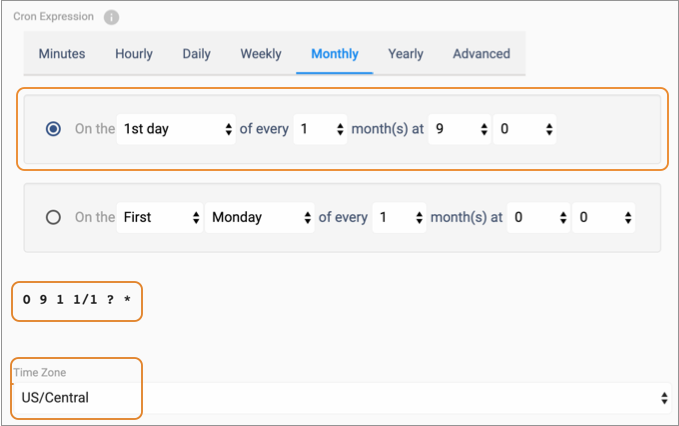Cron Expression
The scheduler uses a UNIX cron expression to determine the frequency with which a scheduled task triggers an action on a job. You can use the UI to define a simple expression or you can define your own advanced expression using the cron expression syntax. The time zone specified for the scheduled task applies to the expression.
0 9 1 1/1 ? *The scheduler provides a UI where you can easily define the schedule without writing a cron expression. The scheduler generates the valid cron expression based on your selections. For example, the following image displays a selected schedule that triggers on the first day of every month at 9 AM in the US/Central time zone. The scheduler lists the read-only generated cron expression beneath the selected schedule:

| Field Name | Mandatory | Allowed Values |
|---|---|---|
| Minutes | yes | 0-59 |
| Hours | yes | 0-23 |
| Day of month | yes | 1-31 |
| Month | yes | 1-12 or JAN-DEC |
| Day of week | yes | 1-7 or SUN-SAT |
| Year | no | empty, 1970-2099 |
The fields can also contain various combinations of the allowed special characters for that field. For example, the asterisk (*) special character can be used in all fields to represent all values within the field.
For a list of the allowed special characters in each field and for example expressions, see the Quartz Scheduler documentation. Note that the Control Hub scheduler does not support the seconds field.